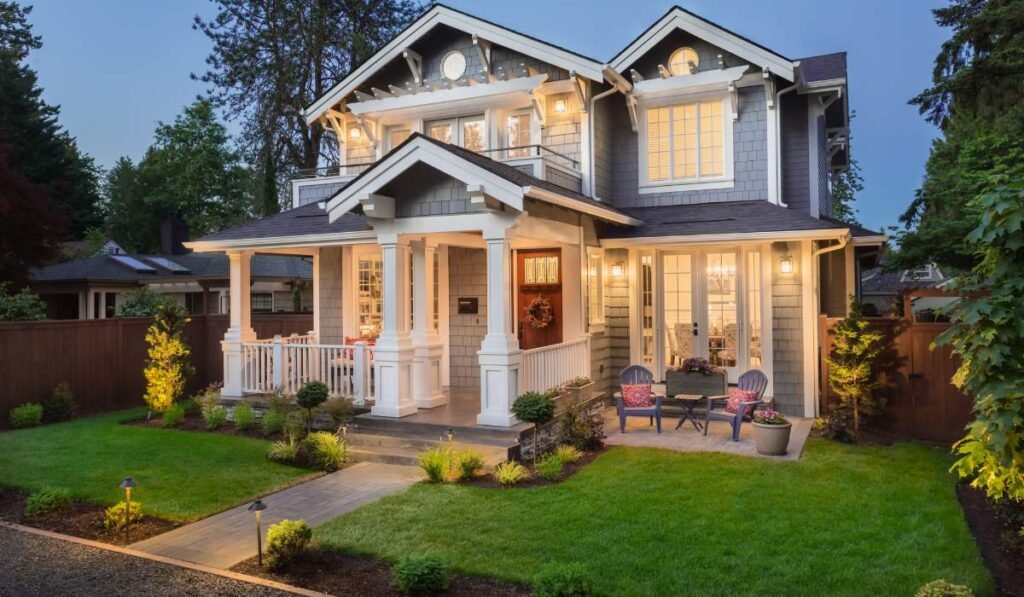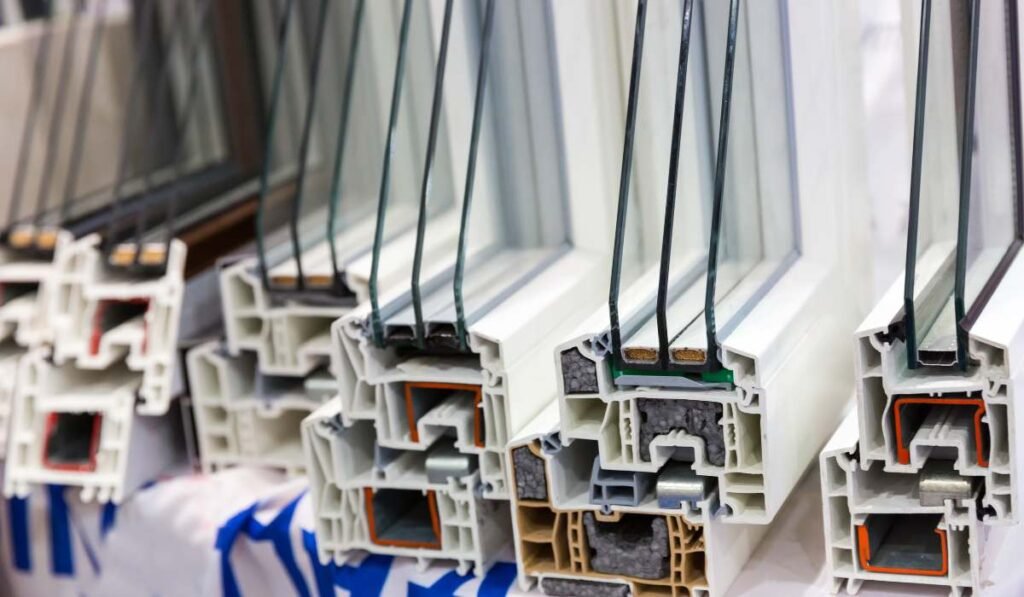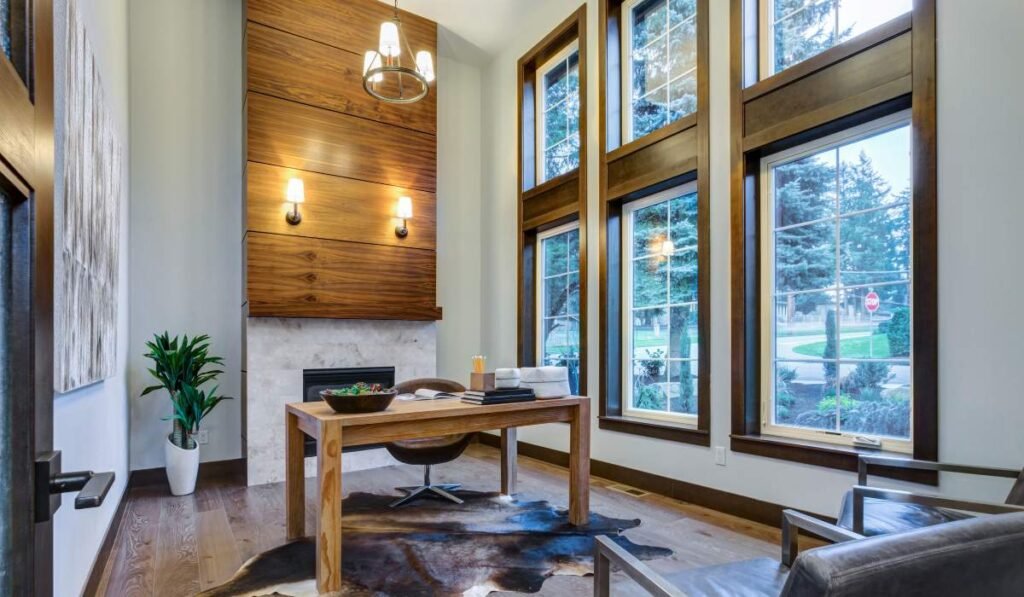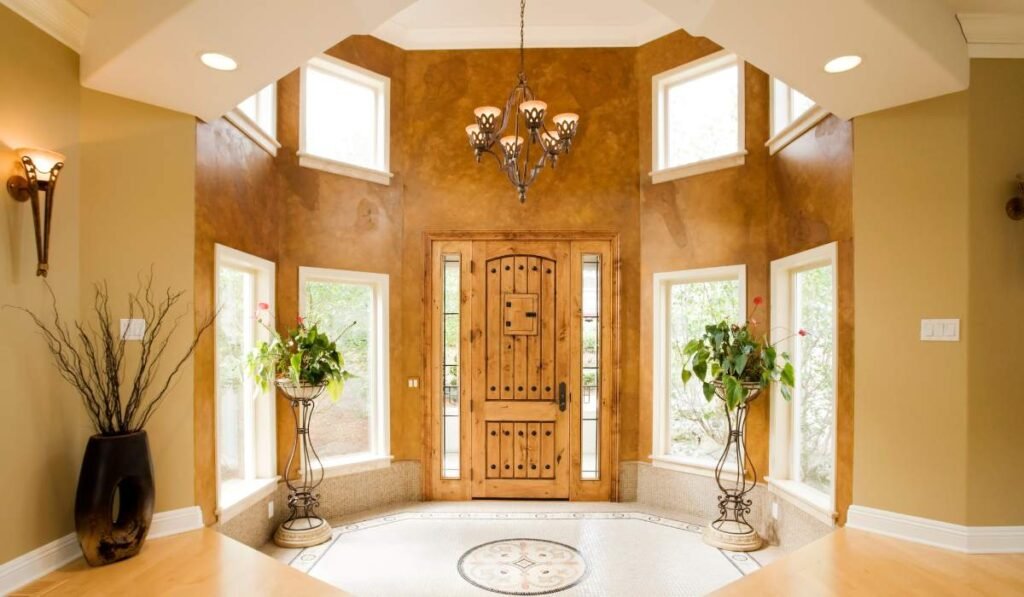Fiberglass vs Vinyl Windows

While having so many options for replacement windows is a great thing, it can become overwhelming comparing so many brands. What material should I use, and what option do I need? I completely understand, so I will go over two of the most popular materials on the market so you can at least narrow down one of your many questions. I am always here to shed light on the window industry to help you find the best option for your needs and your home.
I will compare Fiberglass and vinyl windows in cost, durability, energy efficiency, and maintenance.
Also, it Covers a couple of the top brands for both fiberglass and vinyl windows.
What Are Vinyl Windows?
Vinyl windows are made from polyvinyl chloride (PVC), a material known for its durability and cost-effectiveness. They often incorporate glass fibers within a resin matrix to enhance strength and thermal performance.
These windows are highly resistant to extreme temperatures, making them ideal for various climates. The PVC material allows for a sleek appearance that can mimic the look of traditional wood frames but with added durability.
Due to their composition, vinyl windows are lightweight yet sturdy, offering excellent insulation properties that help in energy efficiency.
What Are the Pros and Cons of Vinyl Windows?
Pro’s
- Energy Efficiency: Vinyl windows often have excellent insulation properties, which can help reduce heating and cooling costs. They typically feature multiple panes of glass and can be filled with insulating gases like argon or krypton.
- Low Maintenance: Unlike wood, vinyl does not require painting or staining. It is resistant to moisture, rot, and pests, making it very low-maintenance.
- Affordability: Vinyl windows are almost always more affordable than wood or Fiberglass, making them cost-effective.
- Durability: Vinyl is a durable material that can withstand most weather conditions
- Variety of Styles and Colors: Vinyl windows come in various styles and colors, allowing homeowners to find an option that matches their aesthetic preferences.
- Ease of Installation: Vinyl replacement windows are often easier and quicker to install than other windows. Less interruption to your life and home is always good.
Cons
- Aesthetic Limitations: Some homeowners feel vinyl windows need a more classic, high-end appearance than wood windows. While many color and style options exist, many vinyls are still generic white and straightforward style lines.
- Size Limits: Vinyl windows can be challenging to customize beyond the manufacturer’s options. This can be a challenge for homeowners with unique window sizes or shapes.
- Environmental Concerns: Vinyl is made from PVC, which is not biodegradable. Its production and disposal can have ecological impacts.
- Expansion and Contraction: Vinyl can expand and contract with temperature changes, potentially causing issues with sealing and fit over time. A broken seal negatively affects energy efficiency and viewing from the window.
- Potential for Fading: Although vinyl is generally resistant to fading, over many years and prolonged exposure to extreme sunlight, some colors may fade or become discolored.
- Structural Strength: While vinyl is durable, it is not as strong as wood or Fiberglass. For very large windows or those in extreme weather conditions, this might be a consideration.
Summary
Of course, the biggest reason most people choose vinyl is that, in most cases, it is the most cost-effective method of replacing windows. Also, being the most popular, it has the advantage of having countless companies that offer vinyl; as we all know, more competition means more competitive pricing. Along with being cost-effective, their minimal maintenance needs are a big selling point for those who want a hassle-free window solution.

What Are Fiberglass Windows?
Fiberglass windows are windows made from glass fibers embedded in a resin matrix, making them highly durable and resistant to warping.
The manufacturing process for fiberglass windows involves pultrusion, a technique commonly used in industries like aerospace to create strong and lightweight structures. This process starts with pulling continuous glass strands through a liquid resin bath, ensuring the fibers are fully saturated.
Once saturated, the strands are pulled through a heated die, where they cure and harden to form the final fiberglass window shape.
What Are the Pros and Cons of Fiberglass Windows?
Pros
- Durability: Fiberglass is solid and durable. It can withstand extreme weather conditions, including high winds, heavy rain, hail, and temperature fluctuations, without warping, cracking, or rotting.
- Energy Efficiency: Fiberglass windows have excellent insulation properties. They are often filled with insulating materials and have multi-pane glass options, which can help reduce energy costs by keeping homes warmer in the winter and cooler in the summer.
- Low Maintenance: Fiberglass windows require minimal maintenance. They do not need to be painted or stained and are resistant to moisture, insects, and corrosion.
- Aesthetic Appeal: Fiberglass can be molded to mimic the appearance of wood, offering a high-end look without the maintenance that wood requires. They come in various styles and colors to suit different architectural designs.
- Stability: Fiberglass has a low thermal expansion rate, meaning it does not expand and contract significantly with temperature changes. This stability helps maintain a tight seal and improves the longevity and performance of the windows.
- Environmental Impact: Fiberglass windows are considered more environmentally friendly than vinyl. They are made from sand, a plentiful resource, and have a longer lifespan, which means fewer replacements over time.
Summary
What sets fiberglass windows apart is their strength and longevity. These windows do not warp, corrode, or rot like traditional materials such as wood or aluminum. This durability ensures that they maintain their pristine appearance for years, making them a worthwhile investment. A simple cleaning routine is usually sufficient to keep them looking as good as new.

Comparison between Fiberglass and Vinyl Windows
Factors such as costs, lifespan, durability, and temperature resistance come into play when comparing Fiberglass and vinyl windows. Each material offers unique advantages and considerations catering to homeowner needs and preferences.
Fiberglass windows are known for their exceptional durability and strength, making them resistant to warping, rotting, and swelling, common issues in other materials like wood.
Conversely, vinyl windows, while generally more cost-effective upfront, may not have the same level of durability as Fiberglass. They require minimal maintenance and are highly energy-efficient, providing potential cost savings over time.
Cost
Cost plays a significant role in the choice between fiberglass and vinyl windows. While fiberglass windows may have higher upfront costs, they offer long-term savings due to their durability and energy efficiency. Vinyl windows, on the other hand, are generally more budget-friendly and suitable for various climates.
Consideration of upfront expenses is crucial when deciding between fiberglass and vinyl windows.
Although initially pricier, fiberglass windows boast high durability and offer better energy efficiency over time, potentially yielding savings on energy bills in the long run. In contrast, while more affordable upfront, vinyl windows may not have the same longevity as fiberglass windows and may require more frequent replacements.
Durability
Durability is a key factor when deciding between fiberglass and vinyl windows. Fiberglass windows are known for their exceptional strength and resistance to warping. In contrast, vinyl windows offer durability through sturdy frames and minimal maintenance requirements.
One of the defining characteristics of fiberglass windows is their ability to withstand extreme weather conditions and constant exposure to sunlight without deteriorating. The combination of glass fibers and resins in Fiberglass ensures long-lasting quality, making them a reliable choice for homeowners seeking durability and longevity in their windows.
Conversely, vinyl windows, with their robust frames, are resistant to moisture and require little maintenance to preserve their integrity over time. Both materials offer unique advantages in terms of durability, catering to different needs and preferences.
Maintenance
In most cases, vinyl and Fiberglass require little to minimal upkeep other than light cleaning and possibly changing weather striping or a handle here or there. Homeowners can enjoy the benefits of both fiberglass and vinyl windows without the need for constant upkeep.

Top Brands for Fiberglass Windows
Marvin
- Products: Infinity from Marvin is their flagship fiberglass replacement window and one of the best windows on the market. Marvin Elevate (formerly known as Integrity Wood-Ultrex) and Marvin Essential (formerly known as Integrity All Ultrex)
- Pros: Known for high-quality craftsmanship, energy efficiency, and various styles and finishes. Marvin windows are often praised for their durability and aesthetic appeal.
- Cons: Higher price point compared to some other brands.
Pella
- Products: Pella Impervia
- Pros: Offers strong, durable windows with a sleek design. Pella’s Impervia line is known for its strength and resistance to warping and weather conditions.
- Cons: Limited color options and higher cost.
Milgard
- Products: Milgard Ultra Series
- Pros: Milgard is known for its durable, energy-efficient windows with a good variety of styles and finishes.
- Cons: Availability can vary by region, and some customers report longer lead times for delivery.
FiberFrame
- Products: FiberFrame’s pultruded fiberglass windows
- Pros: Specializes in fiberglass windows and offers a wide range of customization options.
- Cons: It is less well-known than some of the more prominent brands, which might affect availability and customer service experience.
Inline Fiberglass
- Products: Inline Fiberglass Windows and Doors
- Pros: Offers a wide range of energy-efficient and durable fiberglass window options. Known for high-quality materials and construction.
- Cons: Not as widely available as some of the more mainstream brands.
Top Brands for Vinyl Windows
Pella
- Products: Pella 250 Series, Pella 350 Series
- Pros: Pella offers a range of vinyl windows known for their energy efficiency, durability, and variety of styles. The 350 Series, in particular, is known for its premium features and performance.
Milgard
- Products: Milgard Tuscany Series, Milgard Trinsic Series
- Pros: Milgard is known for its high-quality, energy-efficient vinyl windows. The Tuscany Series offers a traditional look with modern performance, while the Trinsic Series offers a more contemporary design.
Simonton
- Products: Simonton Reflections 5500, Simonton 6500 Series
- Pros: Simonton windows are praised for their durability, energy efficiency, and various styles. They offer a comprehensive warranty and good customer service.
Atrium
- Products: Atrium Series 8700, Atrium Series 150
- Pros: Atrium offers affordable, energy-efficient vinyl windows in a variety of styles and options. It is known for its value for money.
Jeld-Wen
- Products: Jeld-Wen V-4500 Series
- Pros: Jeld-Wen offers durable, energy-efficient vinyl windows in various styles and customization options.
Harvey Windows
- Products: Harvey Classic Vinyl, Harvey Tribute Vinyl
- Pros: Harvey is known for producing high-quality, energy-efficient vinyl windows. The Classic Vinyl series offers traditional designs, while the Tribute series provides more modern aesthetics.
Anlin windows
- Products: Del mar, catalina, coronado and panoramic
- Pros: It offers affordable, energy-efficient vinyl windows that are an amazing value. The Del Mar line has fiberglass-reinforced frames.
- Cons: Not as high-end as Andersen’s main lines.
There are so many quality vinyl window manufacturers. These are just some of the major brands on the market.
Conclusion: Which is Better, Fiberglass or Vinyl Windows?
The choice between fiberglass and vinyl windows depends on various factors. Fiberglass windows have a longer lifespan than vinyl windows, making them a durable and cost-effective option in the long run. They also offer superior temperature control, providing better insulation and energy efficiency for homes. On the other hand, vinyl windows are known for their excellent seal integrity, reducing the chances of drafts and moisture penetration. By evaluating these essential aspects, homeowners can make an informed decision that suits their home’s needs and budget. A comprehensive comparison based on your region’s climate, needs, and budget can help narrow down your choices. I always suggest researching what brands and companies are available in your area first, then looking into the best product for you and your home. The next step is to reach out to the companies offering your desired brand and get some bids for your project. If possible, talk to a couple of different companies to get the best price and the company you feel most comfortable with.
Frequently Asked Questions
What are the main differences between fiberglass and vinyl windows?
Fiberglass windows are made from a composite material, while vinyl windows are made from PVC. Fiberglass is generally more robust and durable, while vinyl is more affordable and low-maintenance.
What are the pros and cons of fiberglass windows?
Fiberglass windows’ main advantages include their strength, durability, and energy efficiency. However, they can be more expensive upfront and may require extensive professional installation.
Why should I choose vinyl windows over Fiberglass?
Vinyl windows are popular due to their affordability, low maintenance, and energy efficiency. They also come in various styles and colors to fit your home’s aesthetic.
What are some top brands for vinyl windows?
Some popular vinyl window brands include Anlin, Pella, and Simonton. Research and compare different brands to find the best fit for your specific needs and budget.
Are fiberglass windows worth the higher cost?
While fiberglass windows may have a higher initial cost, they offer long-term savings through their energy efficiency and durability. Consider your budget and priorities when deciding if the investment is worth it for your home.
What are the best brands for fiberglass windows?
Some top brands for fiberglass windows include Marvin, Milgard, Pella and many more. As with vinyl windows, it’s essential to research and compare brands to find the best fit for your home.





